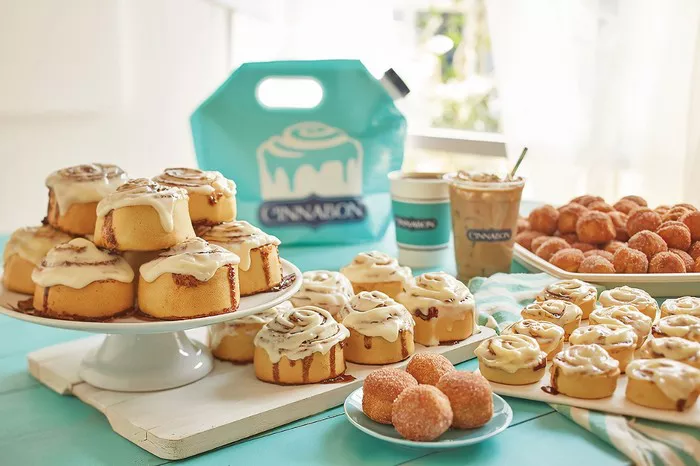Investing in a franchise can be an enticing business opportunity, offering the allure of established brand recognition and proven business models. One such franchise that has captured the hearts (and taste buds) of millions worldwide is Cinnabon. Renowned for its irresistible cinnamon rolls and aromatic baked goods, Cinnabon has become a staple in the global food industry. However, embarking on the journey of owning a Cinnabon franchise requires careful consideration of the initial costs involved. In this comprehensive guide, we delve into the various expenses associated with starting a Cinnabon franchise, providing aspiring entrepreneurs with invaluable insights to make informed decisions.
Franchise Fees and Initial Investment
The journey of becoming a Cinnabon franchisee begins with the initial franchise fee, which grants individuals the right to operate under the Cinnabon brand. The franchise fee for a single Cinnabon location typically ranges from $30,000 to $40,000. This fee is non-refundable and covers the cost of initial training, support, and access to the brand’s proprietary recipes and operating procedures.
In addition to the franchise fee, prospective franchisees must also consider the initial investment required to set up and launch their Cinnabon store. The total initial investment varies depending on factors such as location, store size, and local market conditions. On average, the initial investment for a Cinnabon franchise ranges from $180,000 to $400,000. This investment includes expenses such as leasehold improvements, equipment purchases, initial inventory, and marketing expenses.
Real Estate and Leasehold Improvements
Securing an ideal location is crucial for the success of any franchise business, and Cinnabon is no exception. The cost of real estate and leasehold improvements can significantly impact the overall investment required to start a Cinnabon franchise. Leasehold improvements encompass renovations and modifications to the leased space to meet Cinnabon’s brand standards and operational requirements.
The cost of real estate varies widely depending on factors such as location, size, and market demand. Urban locations with high foot traffic tend to command higher lease rates compared to suburban or rural areas. Leasehold improvements can range from $50,000 to $150,000 or more, depending on the condition of the leased space and the extent of renovations required.
Equipment and Supplies
Equipping a Cinnabon store with the necessary baking equipment, display fixtures, and kitchen appliances is another significant expense for franchisees. Cinnabon’s menu relies heavily on specialized equipment designed specifically for baking and serving their signature cinnamon rolls and other baked goods.
The cost of equipment and supplies can vary depending on the size and layout of the store, as well as the specific menu offerings. Key equipment items include dough mixers, proofing cabinets, ovens, icing dispensers, and refrigeration units. Depending on the complexity of the store layout and menu offerings, equipment costs can range from $50,000 to $100,000 or more.
In addition to equipment costs, franchisees must budget for ongoing supplies such as flour, sugar, cinnamon, icing, packaging materials, and cleaning supplies. These recurring expenses are essential for day-to-day operations and maintaining product quality and consistency.
Training and Support
One of the advantages of joining a franchise system like Cinnabon is access to comprehensive training and ongoing support from the franchisor. Cinnabon provides new franchisees with an extensive training program covering all aspects of store operations, including product preparation, customer service, inventory management, and marketing strategies.
The cost of training and support is typically included in the initial franchise fee, but franchisees may incur additional expenses such as travel and accommodation if training is conducted at a centralized location away from their home base. Franchisees can also expect ongoing support from Cinnabon’s corporate team, including field visits, marketing assistance, and access to operational resources and best practices.
Marketing and Advertising
Effective marketing and advertising are essential for attracting customers and generating awareness for a new Cinnabon franchise location. While Cinnabon provides franchisees with marketing support and brand collateral, franchisees are responsible for executing local marketing initiatives to drive traffic and sales.
The cost of marketing and advertising can vary depending on the size of the local market and the desired outreach channels. Common marketing expenses include signage, print materials, digital advertising, social media campaigns, and local events or promotions. Franchisees should allocate a budget for ongoing marketing efforts to maintain visibility and engage with their target audience.
Additional Fees and Expenses
In addition to the aforementioned costs, prospective Cinnabon franchisees should be aware of other fees and expenses associated with franchise ownership. These may include:
1. Royalty Fees: Franchisees are typically required to pay ongoing royalty fees based on a percentage of gross sales. These fees contribute to the ongoing support and infrastructure provided by the franchisor.
2. Technology Fees: Some franchisors charge technology fees to cover the cost of proprietary software systems, point-of-sale terminals, and online ordering platforms.
3. Insurance: Franchisees must obtain adequate insurance coverage to protect against liabilities such as property damage, product liability, and worker’s compensation.
4. Legal and Professional Fees: Franchise agreements and lease negotiations may require legal review, which can incur additional legal fees. Franchisees may also seek the assistance of accountants or financial advisors to navigate the complexities of franchise ownership.
Conclusion
While the prospect of owning a Cinnabon franchise can be exciting, it’s essential for aspiring entrepreneurs to understand the full scope of costs involved. From the initial franchise fee to ongoing expenses such as real estate, equipment, and marketing, starting a Cinnabon franchise requires a significant financial investment. However, for individuals passionate about the brand and willing to commit to the rigorous demands of franchise ownership, the potential rewards can be substantial. By carefully evaluating the costs and benefits and working closely with the franchisor, prospective franchisees can position themselves for success in the competitive world of franchising.

